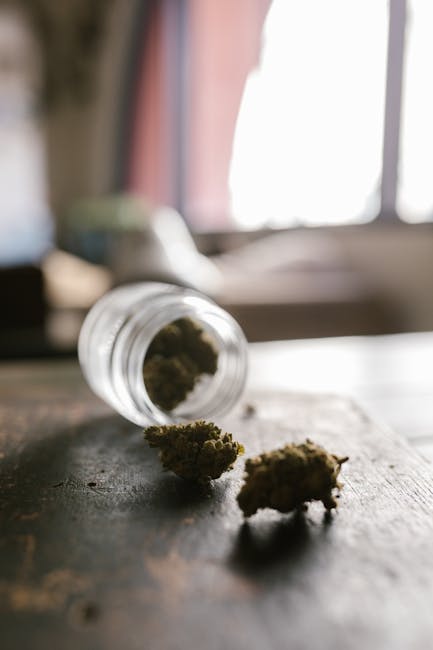Paris, the City of Light, is known for its romantic atmosphere, historic landmarks, and vibrant culture. However, beneath its picturesque façade, Paris has a complex and often contradictory relationship with marijuana. While the sale and possession of cannabis are technically illegal in France, the city has seen a significant rise in the demand for marijuana, leading to a thriving black market and, more recently, the emergence of marijuana delivery services.
The Legal Framework
France has strict laws regarding cannabis. The possession, sale, and distribution of marijuana are illegal and can result in severe penalties, including fines and imprisonment. However, in recent years, there has been a shift towards a more tolerant approach, particularly with the introduction of medical cannabis. In 2020, France launched a two-year medical cannabis trial, allowing patients with certain conditions to access cannabis-based treatments under strict supervision.
The Rise of Marijuana Delivery Services
Despite the legal risks, marijuana delivery services have begun to operate in Paris, catering to a growing demand from both recreational and medicinal users. These services often use encrypted communication channels and clandestine delivery methods to evade law enforcement. The rise of these services reflects a broader trend towards the normalization of cannabis use in France, with many citizens advocating for a more liberal approach to drug policy.
- Discreet and Convenient: Marijuana delivery services offer users the convenience of ordering cannabis from the comfort of their own homes, avoiding the risks associated with purchasing from street dealers.
- Quality Control: Many delivery services pride themselves on offering high-quality products, lab-tested for potency and purity, which can be a significant advantage over the black market.
- Variety: Delivery services often provide a wide range of strains and products, catering to diverse user preferences and needs.
Challenges and Risks
While marijuana delivery services offer several benefits, they also face significant challenges. The illegal status of cannabis in France means that these services operate in a legal gray area, risking fines, confiscation of goods, and even imprisonment. Moreover, the lack of regulation poses risks to consumers, including the potential for contaminated or adulterated products.
The Future of Marijuana Delivery in Paris
The future of marijuana delivery in Paris remains uncertain. While there is growing public support for cannabis legalization, the French government has been cautious in its approach. As the debate continues, marijuana delivery services will likely remain a contentious issue, reflecting broader societal attitudes towards drug use and regulation.
Public Perception and Advocacy
The growing demand for marijuana delivery services in Paris is also reflected in shifting public opinion. A significant portion of the French population now supports the legalization of cannabis, citing reasons such as medical benefits, reduced crime, and personal freedom. Advocacy groups, including Collectif d’Information et de Recherche Cannabique (CIRC), have been instrumental in pushing for policy reform, organizing campaigns, and providing education on the benefits and risks associated with cannabis use.
The Role of Technology
Technology has played a crucial role in the emergence and growth of marijuana delivery services in Paris. The use of encrypted messaging apps, secure online platforms, and digital payment systems has enabled these services to operate discreetly. Moreover, the COVID-19 pandemic has accelerated the adoption of delivery services across various industries, including the cannabis market, as consumers increasingly turn to online platforms for convenience and safety.
Potential Economic Benefits
If cannabis were to be legalized in France, the marijuana industry could potentially generate significant tax revenue and create new job opportunities. A regulated market would also allow for better control over the quality and distribution of cannabis products, potentially reducing the influence of the black market. Furthermore, Paris, with its global reputation and tourist appeal, could become a hub for cannabis tourism, attracting visitors from countries where cannabis is legal.
Challenges Ahead
Despite the potential benefits, there are numerous challenges that need to be addressed. These include establishing a fair and effective regulatory framework, combating the black market, and ensuring public health and safety. The French government will need to carefully consider these factors as it weighs its options on cannabis legalization.
The landscape of marijuana delivery in Paris is complex and subject to change. As public opinion continues to shift and advocacy efforts gain momentum, the pressure on policymakers to revisit France’s cannabis laws is likely to grow. Whether or not marijuana delivery services will continue to operate in their current form remains to be seen, but it is clear that they are part of a broader conversation about the future of cannabis in France.
Regulatory Framework for Cannabis Legalization
Establishing a regulatory framework for cannabis legalization in France will be a complex task. The government will need to consider various factors, including licensing, taxation, and age restrictions. A well-designed regulatory framework could help to reduce the black market, generate tax revenue, and ensure public health and safety.
Licensing and Taxation
One of the key aspects of regulating the cannabis industry will be the development of a licensing system. This could involve issuing licenses to growers, processors, and retailers, and imposing strict regulations on the production and sale of cannabis products. Taxation will also be a crucial aspect, with the government needing to balance the need to generate revenue with the risk of driving the industry back underground.
- Tax Revenue: A regulated cannabis industry could generate significant tax revenue for the French government.
- Job Creation: The cannabis industry could create new job opportunities in areas such as cultivation, processing, and retail.
- Reduced Crime: By regulating the industry, the government could help to reduce the influence of organized crime;
Public Health Considerations
Public health will be a major consideration in the regulation of the cannabis industry. The government will need to ensure that cannabis products are safe for consumption and that adequate measures are in place to prevent underage use. This could involve imposing strict regulations on packaging and labeling, as well as investing in education and prevention programs.
Education and Prevention
Education and prevention will be critical in reducing the risks associated with cannabis use. The government could invest in public awareness campaigns, as well as programs to help individuals who are struggling with cannabis addiction. By taking a proactive approach to public health, the government can help to minimize the negative consequences of cannabis use.
The future of marijuana delivery in Paris is uncertain, but it is clear that the industry is here to stay. As the French government considers its options on cannabis legalization, it will need to carefully weigh the potential benefits and risks. By establishing a well-designed regulatory framework, the government can help to create a safe and responsible cannabis industry that benefits both consumers and the wider community.






The article provides a comprehensive overview of the complex relationship between Paris and marijuana, highlighting the contrast between the citys strict laws and the growing demand for cannabis.